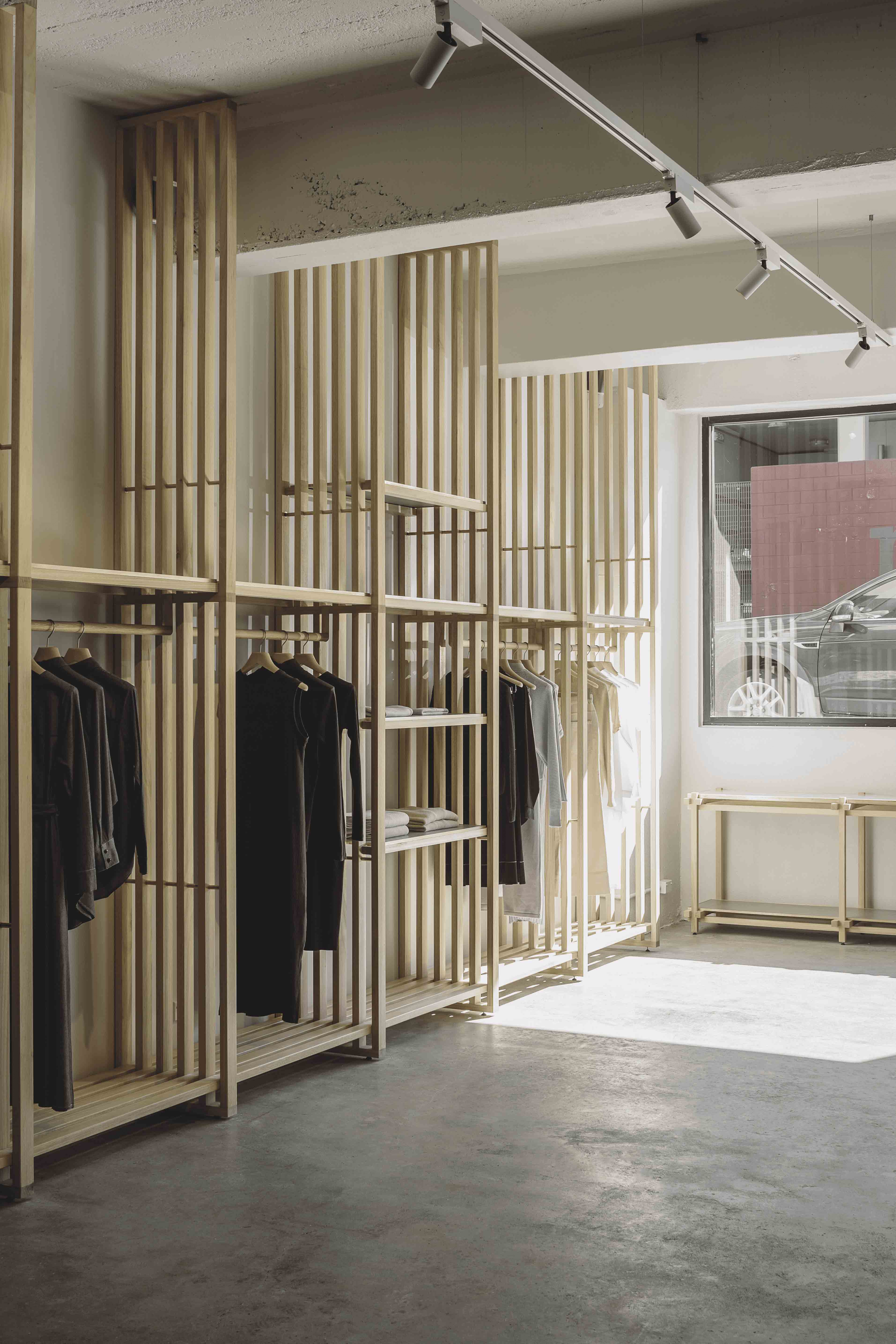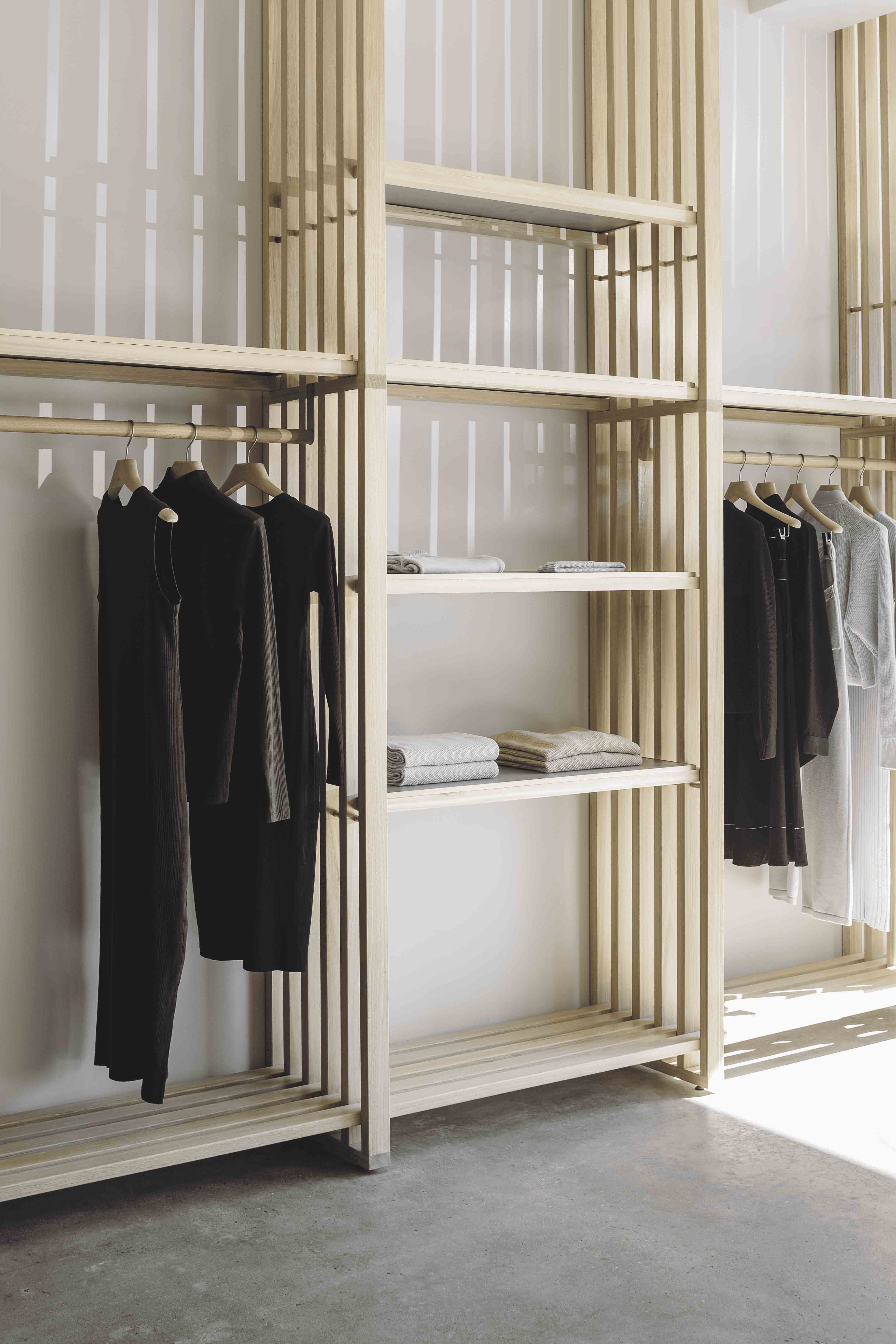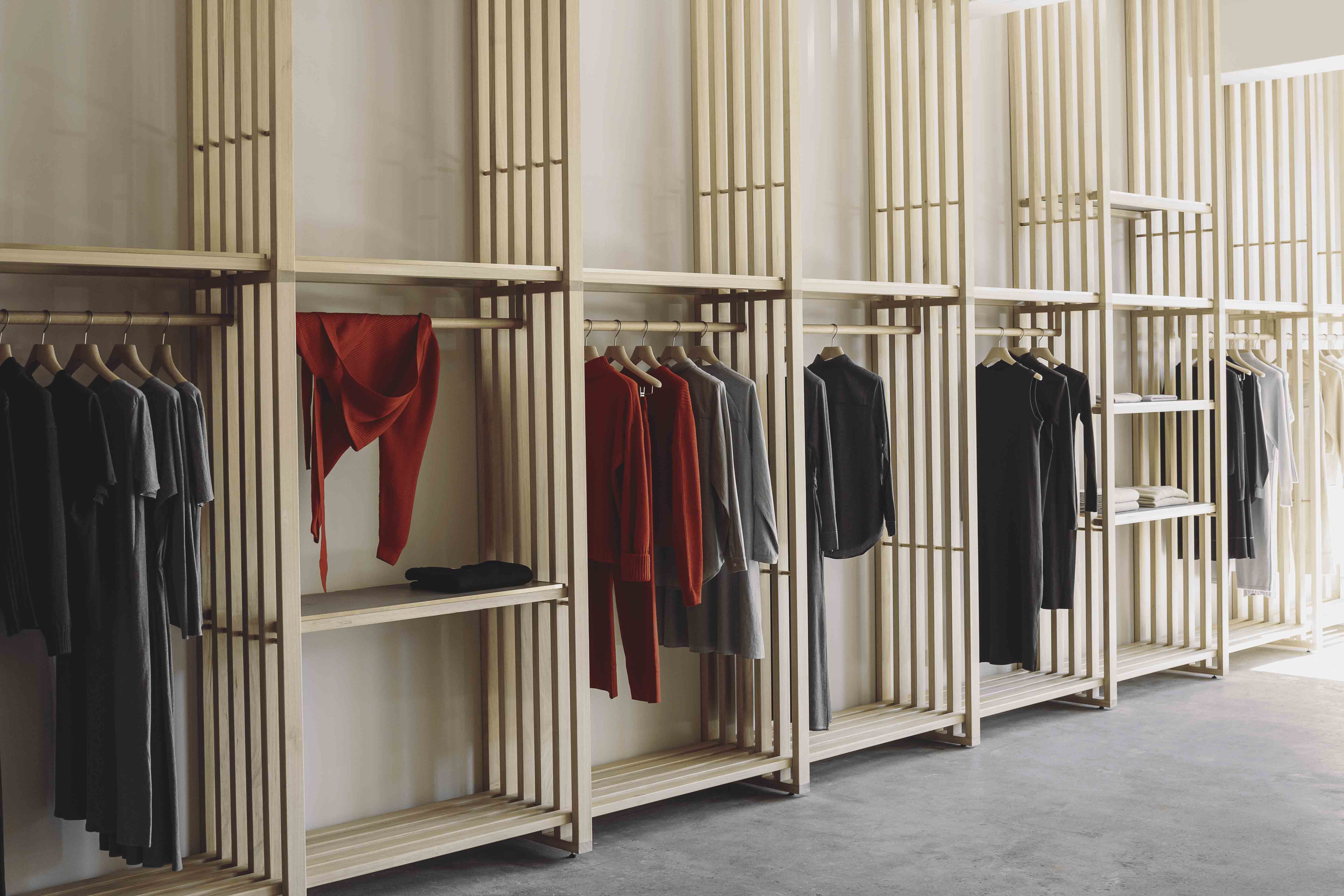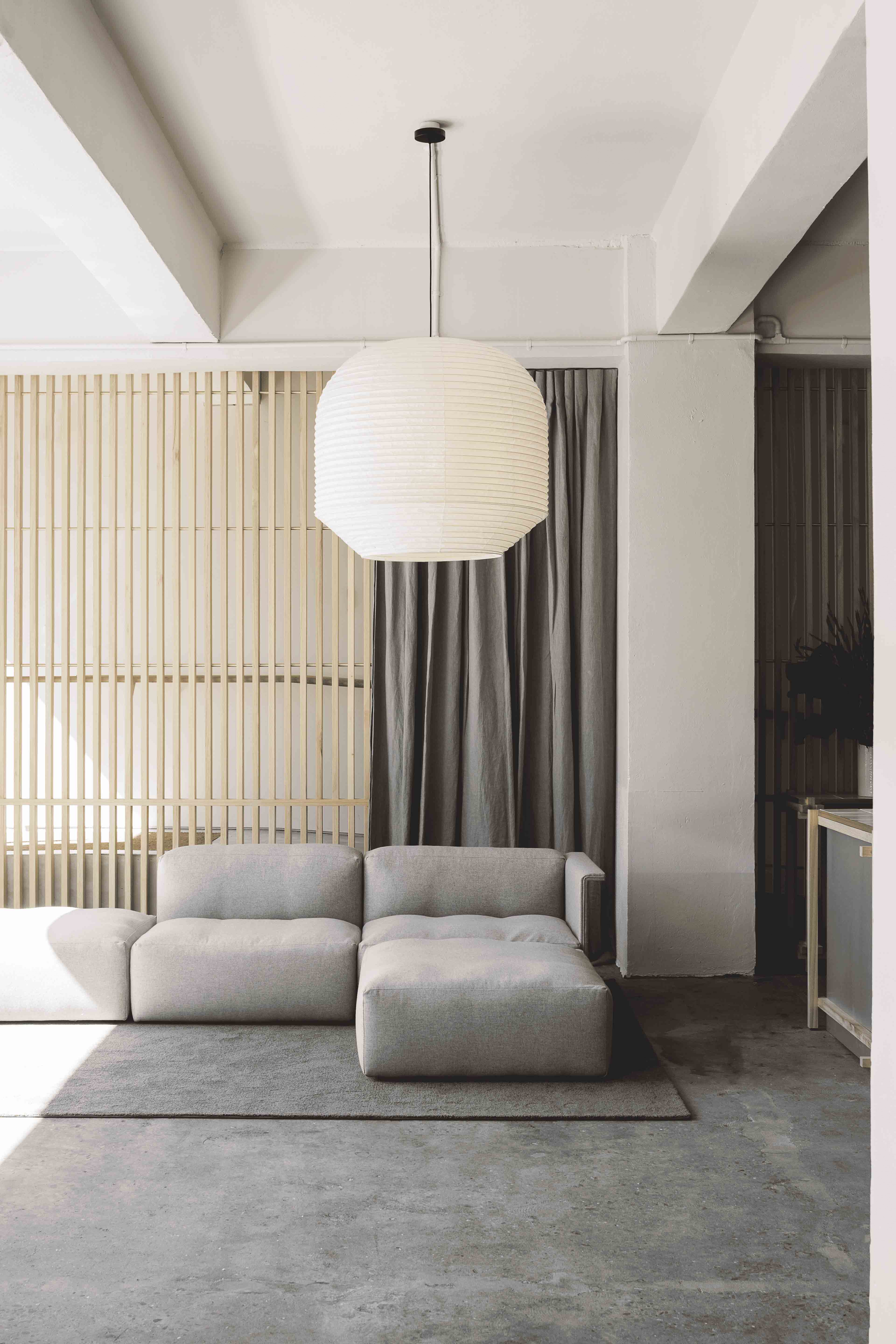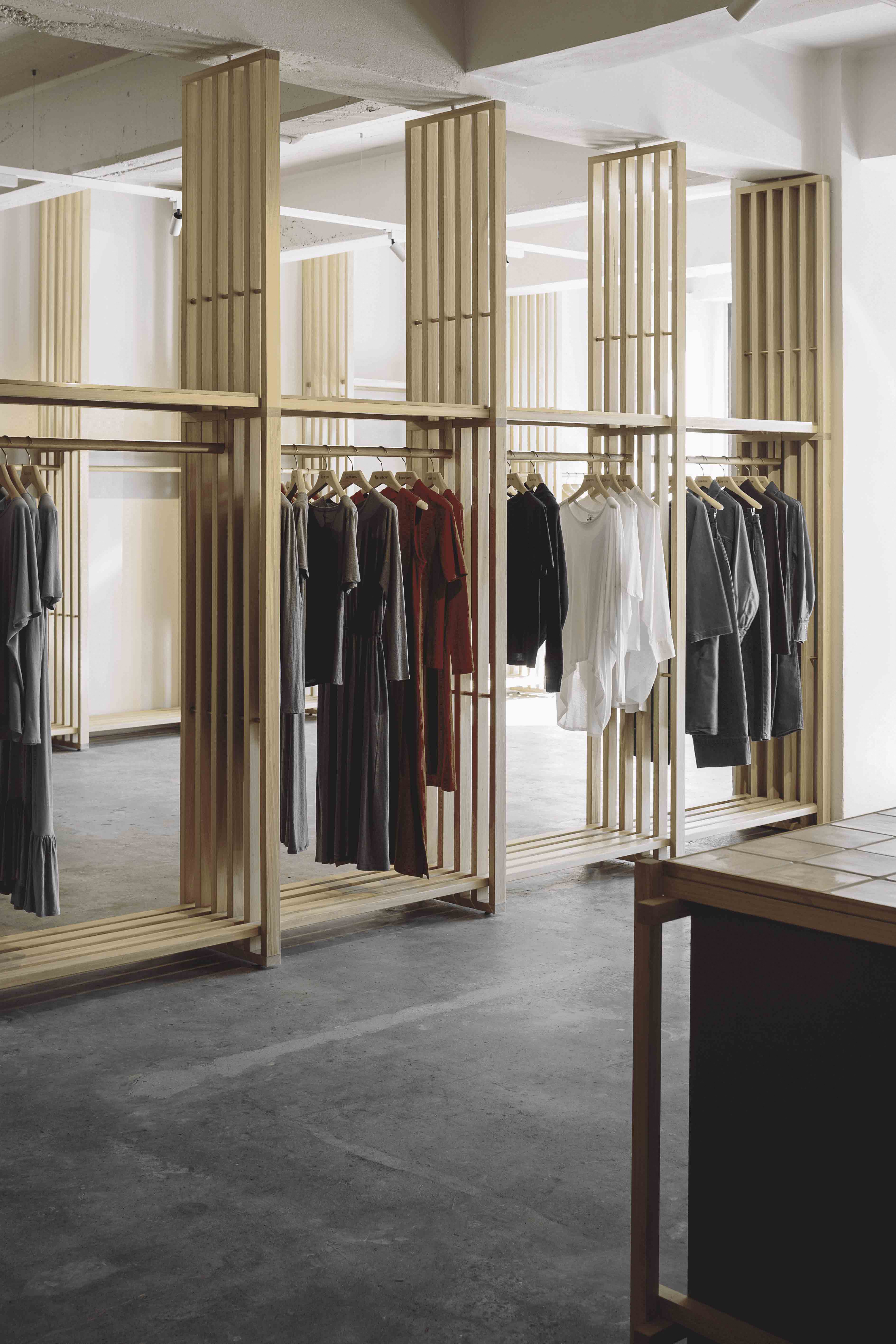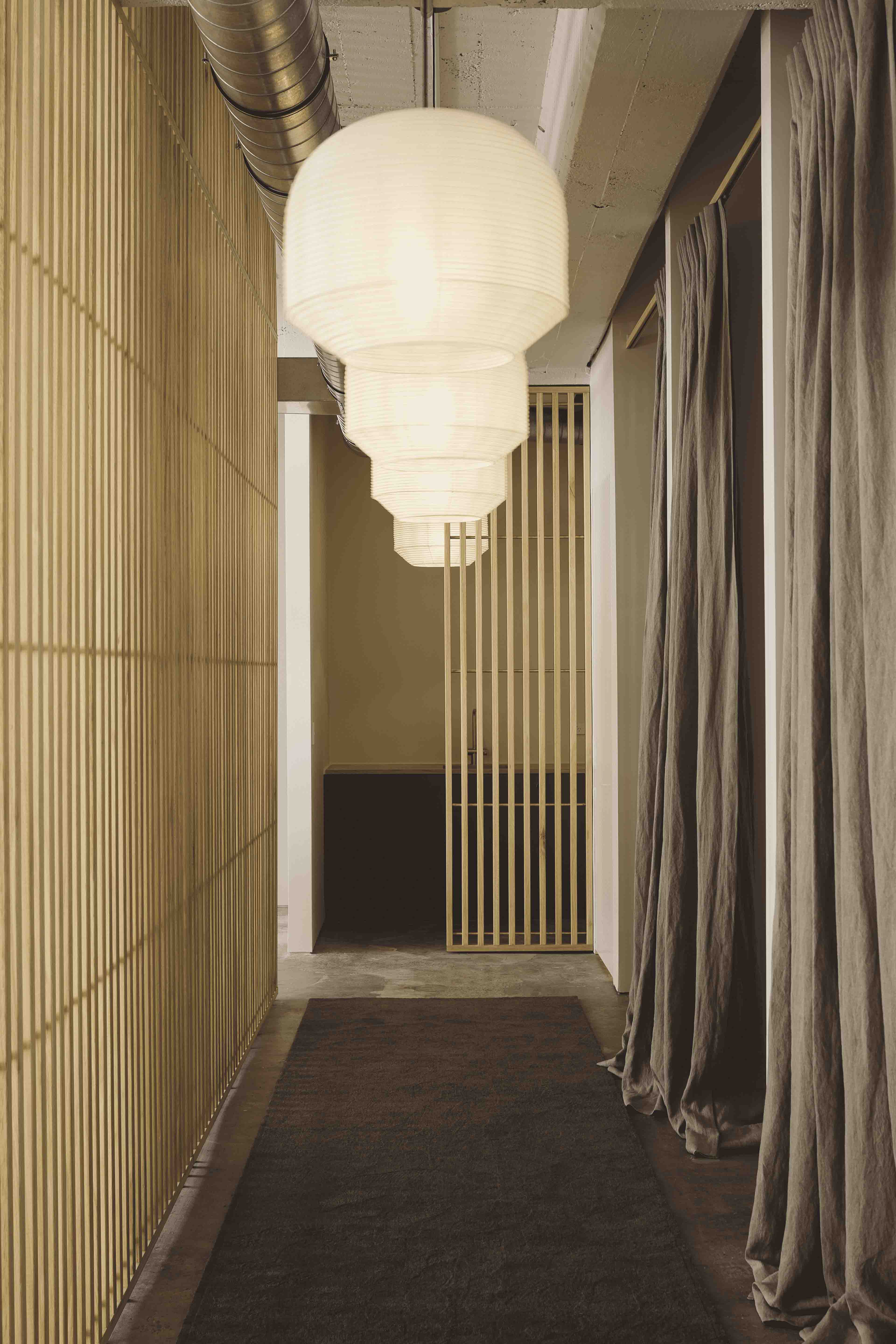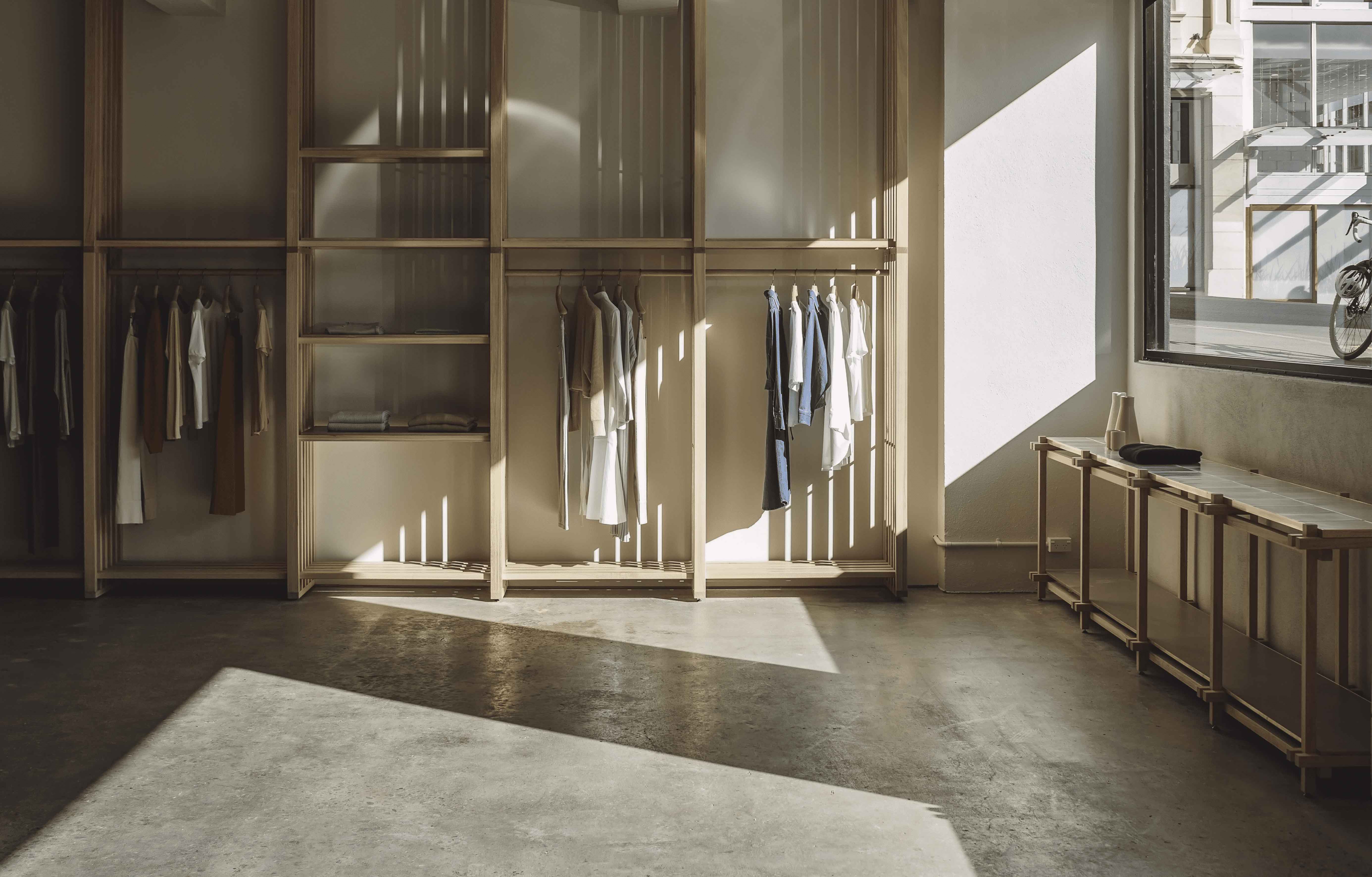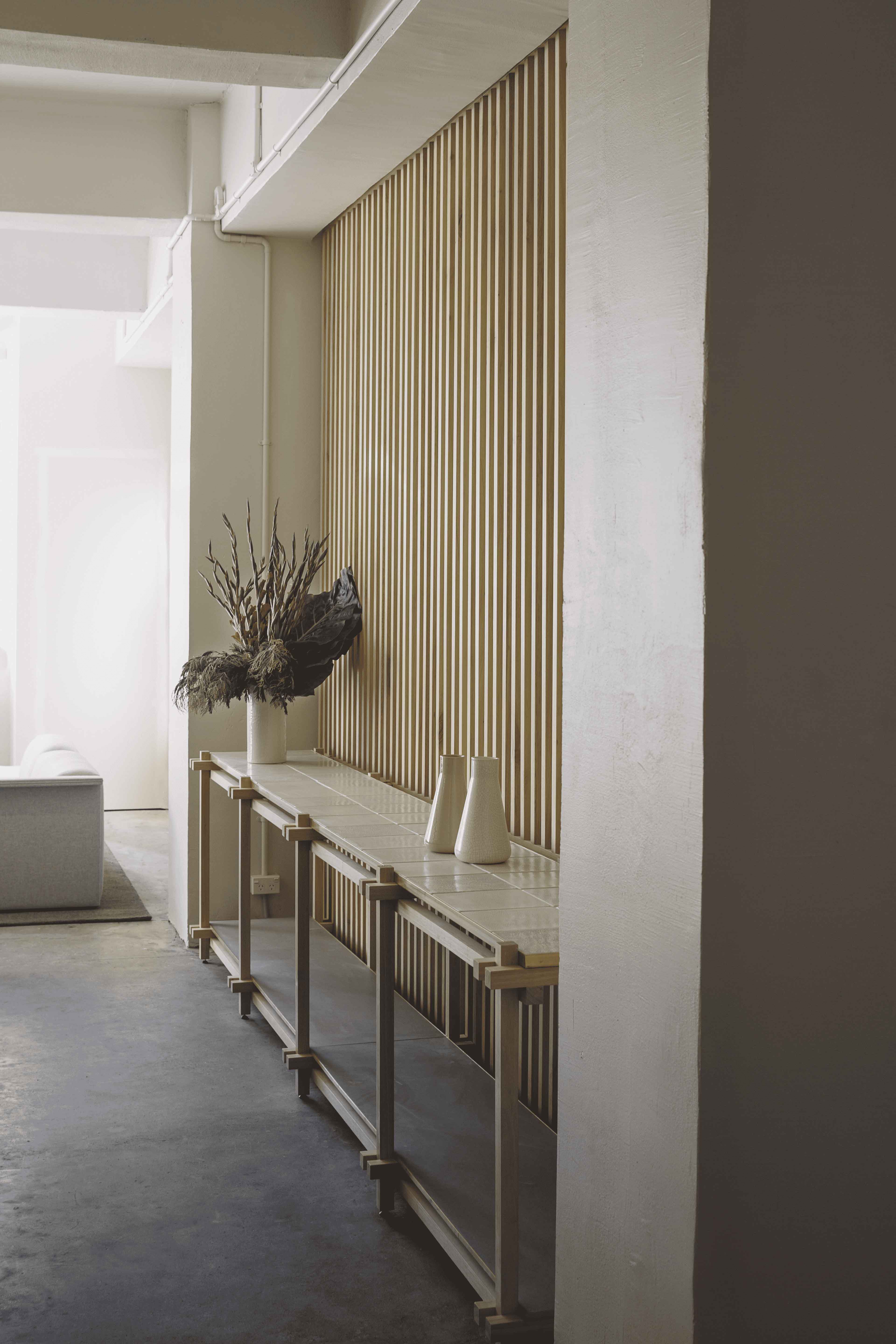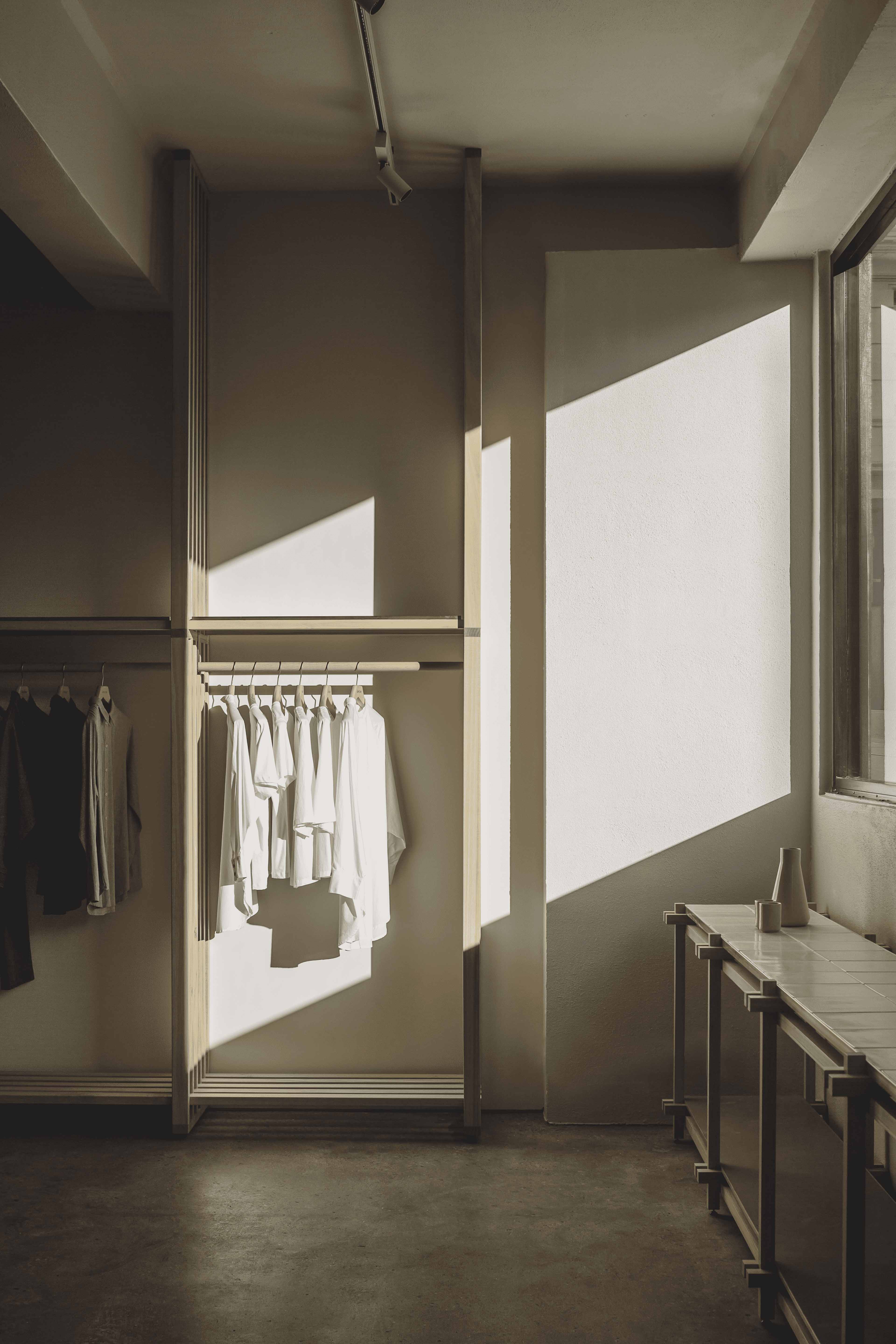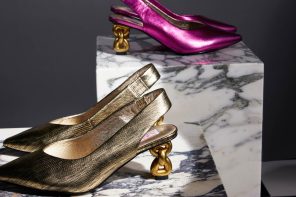Eleven years after its inception, Kowtow launched a flagship store in its hometown Wellington. Building on the desire to create an ethical label that would be the example for a fashion-forward business, their store has an emphasis on natural, locally sourced and sustainable materials. “The store opening is an opportunity to bring the Kowtow ethos into a physical space,” explained founder and creative director, Gosia Piatek. “The only option for us was to engage interior designer and architect, Rufus Knight, as he is leading the charge with innovative interiors.” Knight, in turn, was excited to work with Kowtow as sustainability and traceability is core to what the label does and what Knight wanted to execute in the design. Every detail was carefully considered; from the recycled nylon rugs to the New Zealand grown and milled timber.
From the outside looking in, a passerby can have an open and transparent view of the store through two large windows which delicately frame the space. Exuding minimalism, simplicity and generosity; floor to ceiling structures divide the area with rhythm while supporting a bespoke racking system.
The store articulates minimalism, simplicity and generosity. From the outside, two large windows frame the space. Instead of traditional displays, any passerby can have an open and transparent view of the store’s day-to-day life.
The point of sale anchors the interior, inviting conversation over the valchromat unit, FSC certified and made with post-industrial recycled wood chips. The display shelves that punctuate the space are also made of the same recycled material. “We were fortunate to work with such an outstanding team. Rufus Knight understood the importance of designing a space that would communicate our values in ethics and sustainability,” said Piatek. Sustainably grown, harvested and milled eucalyptus, finished by hand with a non-toxic, eco-friendly Osmo hard wax oil was used in the store as well. Handmade ceramic tiles by local Wellington artist Gidon Bing are sprinkled through the interior as well. The rugs in-store are made from salvaged and recycled synthetics, including fishing nets recovered from the ocean. A modular sofa designed by Simon James was upholstered with renewable and compostable fibres such as virgin wool blends. The linen curtains are made from a material that was sustainably grown, harvested and processed using the environmentally friendly dew-retting method. Lastly, the Hotaru Buoy pendant lights were designed by Barber & Osgerby, manufactured by Ozeki & Co Ltd., a celebrated Japanese company dedicated to making paper lanterns since 1891.
The design and concept of the store was a collaboration between Kowtow and Rufus Knight. “Aesthetically, we were on the same page,” said Piatek. “He really perfected minimalism.” Working with Makers of Architecture and Makers of Fabrication, Piatek said Knight recommended them from the beginning. “Beth Cameron managed the entire project and was incredibly thorough and committed to ensuring the space was filled with natural and sustainable fittings. The level of research and care put into every single element by both Rufus and Makers was exceptional, and I think that really shows in the result. We made a great team.”


